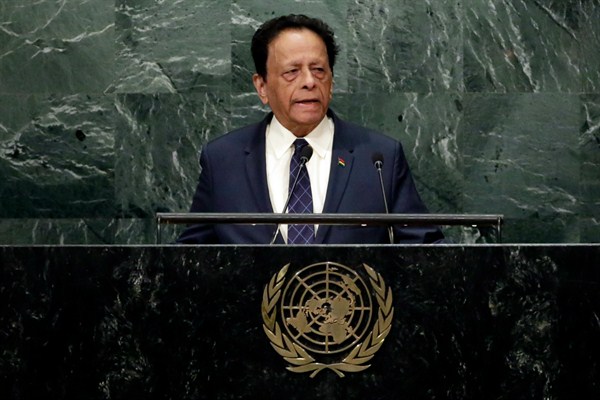Last week, Pravind Jugnauth, the son of Mauritius’ outgoing prime minister, Anerood Jugnauth, was appointed prime minister after his father announced he was stepping down. Many in Mauritius have denounced the move as nepotism and called on the opposition to hold a referendum. In an email interview, Roukaya Kasenally, a senior adviser at the Africa Media Initiative, discusses politics in Mauritius.
WPR: To what extent does the appointment of outgoing Prime Minister Anerood Jugnauth’s son, Pravind Jugnauth, as prime minister belie Mauritius’ reputation for solid democratic institutions and practices?
Roukaya Kasenally: In the Economist Intelligence Unit’s latest Democracy Index, Mauritius was named as the only full democracy in Africa, which requires the existence of “a political culture that is conducive to the flourishing of democracy.” Unfortunately, Anerood Jugnauth passing the office of prime minister to his son does not meet this requirement, and instead smacks of nepotism and dynastic politics. In fact, what is disquieting is that this transfer of power was never part of the electoral mandate that brought the current coalition government to power following the December 2014 elections. Opposition parties and citizens have taken to the streets to condemn what is popularly called the “father-son” deal.

